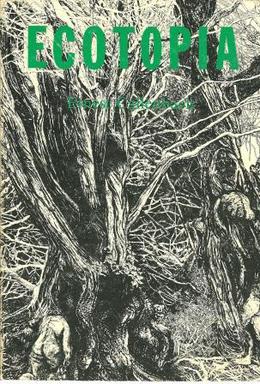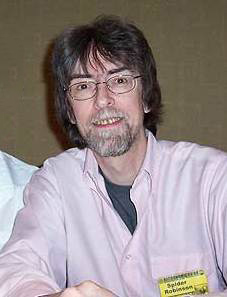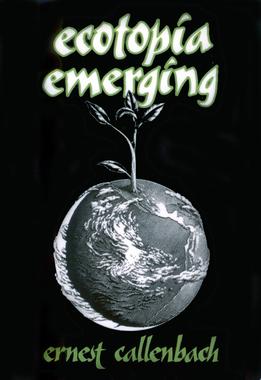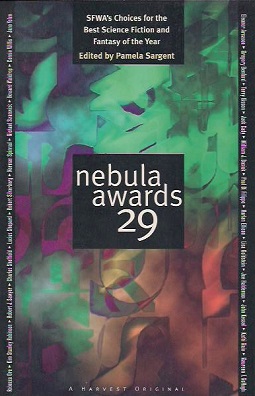
Kim Stanley Robinson is an American writer of science fiction. He has published 22 novels and numerous short stories and is best known for his Mars trilogy. His work has been translated into 24 languages. Many of his novels and stories have ecological, cultural, and political themes and feature scientists as heroes. Robinson has won numerous awards, including the Hugo Award for Best Novel, the Nebula Award for Best Novel and the World Fantasy Award. The Atlantic has called Robinson's work "the gold standard of realistic, and highly literary, science-fiction writing." According to an article in The New Yorker, Robinson is "generally acknowledged as one of the greatest living science-fiction writers."
Pulp magazines were inexpensive fiction magazines that were published from 1896 to the late 1950s. The term "pulp" derives from the cheap wood pulp paper on which the magazines were printed. In contrast, magazines printed on higher-quality paper were called "glossies" or "slicks". The typical pulp magazine had 128 pages; it was 7 inches (18 cm) wide by 10 inches (25 cm) high, and 0.5 inches (1.3 cm) thick, with ragged, untrimmed edges. Pulps were the successors to the penny dreadfuls, dime novels, and short-fiction magazines of the 19th century.
Utopian and dystopian fiction are subgenres of science fiction that explore social and political structures. Utopian fiction portrays a setting that agrees with the author's ethos, having various attributes of another reality intended to appeal to readers. Dystopian fiction offers the opposite: the portrayal of a setting that completely disagrees with the author's ethos. Some novels combine both genres, often as a metaphor for the different directions humanity can take depending on its choices, ending up with one of two possible futures. Both utopias and dystopias are commonly found in science fiction and other types of speculative fiction.

Ecotopia: The Notebooks and Reports of William Weston is a utopian novel by Ernest Callenbach, published in 1975. The society described in the book is one of the first ecological utopias and was influential on the counterculture and the green movement in the 1970s and thereafter. The author himself claimed that the society he depicted in the book is not a true utopia, but, while guided by societal intentions and values, was imperfect and in-process.

Spider Robinson is an American-born Canadian science fiction author. He has won a number of awards for his hard science fiction and humorous stories, including the Hugo Award 1977 and 1983, and another Hugo with his co-author and wife Jeanne Robinson in 1978.

Ernest William Callenbach was an American author, film critic, editor, and simple living adherent. He became famous due to his 1975 utopian novel Ecotopia.

Robert James Sawyer is a Canadian and American science fiction writer. He has had 24 novels published and his short fiction has appeared in Analog Science Fiction and Fact, Amazing Stories, On Spec, Nature, and numerous anthologies. He has won many writing awards, including the best-novel Nebula Award (1995), the best-novel Hugo Award (2003), the John W. Campbell Memorial Award (2006), the Robert A. Heinlein Award (2017), and more Aurora Awards than anyone else in history.
Future Primitive may refer to:

Lovelock is a 1994 science fiction novel by American writers Orson Scott Card and Kathryn H. Kidd. The novel's eponymous narrator, a sentient monkey, takes his name from James Lovelock, the scientist-inventor who formulated the Gaia hypothesis, which figures heavily in the book.

The Viagens Interplanetarias series is a sequence of science fiction stories by L. Sprague de Camp, begun in the late 1940s and written under the influence of contemporary space opera and sword and planet stories, particularly Edgar Rice Burroughs's Martian novels. Set in the future in the 21st and 22nd centuries, the series is named for the quasi-public Terran agency portrayed as monopolizing interstellar travel, the Brazilian-dominated Viagens Interplanetarias. It is also known as the Krishna series, as the majority of the stories belong to a sequence set on a fictional planet of that name. While de Camp started out as a science fiction writer and his early reputation was based on his short stories in the genre, the Viagens tales represent his only extended science fiction series.

Ecotopia Emerging(EE) by Ernest Callenbach is a fictionalized history of the events leading up to the secession of Northern California, Oregon, and Washington to form the steady-state, environmentalist nation of Ecotopia along the Pacific Coast of the United States. In 1975, Callenbach had published a utopian novel called Ecotopia about the events; EE is the prequel, published in 1981. The EE story seems to take place in the 1990s; Callenbach assumes that the pro-business, anti-environmental Reagan-era policies—already evident at the time of publication—will have persisted in the United States after Reagan's presidency.

Nebula Winners Thirteen is an anthology of science fiction short works edited by Samuel R. Delany. It was first published in hardcover by Harper & Row in February 1980, with a paperback edition following from Bantam Books in August 1981.
Pulphouse Publishing was an American small press publisher based in Eugene, Oregon, and specializing in science fiction and fantasy. It was founded by Dean Wesley Smith and Kristine Kathryn Rusch in 1988. The press was active until 1996. Over that period, Pulphouse published 244 different titles.

Alan Marshall is a New Zealand author, scholar, and artist working within the discipline of environmental studies. He is noted as a key scholar in environmental philosophy and for his investigations into eco-friendly cities of the future. For his research on these topics, the University of Wollongong awarded Marshall a doctorate and National Geographic assigned him as an explorer.

Climate fiction is literature that deals with climate change. Generally speculative in nature but inspired by climate science, works may take place in the world as we know it, in the near future or in fictional worlds experiencing climate change. The genre frequently includes science fiction and dystopian or utopian themes, imagining the potential futures based on how humanity responds to the impacts of climate change. The genre typically focuses on anthropogenic climate change and other environmental issues as opposed to weather and disaster more generally. Technologies such as climate engineering or climate adaptation practices often feature prominently in works exploring their impacts on society.
This is a bibliography of American science fiction author Kim Stanley Robinson.

Nebula Awards 29 is an anthology of award-winning science fiction short works edited by Pamela Sargent, the first of three successive volumes under her editorship. It was first published in hardcover and trade paperback by Harcourt Brace in April 1995.

Nebula Awards 24 is an anthology of award-winning science fiction short works edited by Michael Bishop, the second of three successive volumes published under his editorship. It was first published in hardcover and trade paperback by Harcourt Brace Jovanovich in April 1990.

Nebula Awards Showcase 2014 is an anthology of science fiction short works edited by Kij Johnson. It was first published in trade paperback by Pyr in May 2014.

The Ministry for the Future is a climate fiction ("cli-fi") novel by American science fiction writer Kim Stanley Robinson published in 2020. Set in the near future, the novel follows a subsidiary body, established under the Paris Agreement, whose mission is to act as an advocate for the world's future generations of citizens as if their rights are as valid as the present generation's. While they pursue various ambitious projects, the effects of climate change are determined to be the most consequential. The plot primarily follows Mary Murphy, the head of the titular Ministry for the Future, and Frank May, an American aid worker traumatized by experiencing a deadly heat wave in India. Many chapters are devoted to other characters' accounts of future events, as well as their ideas about ecology, economics, and other subjects.















